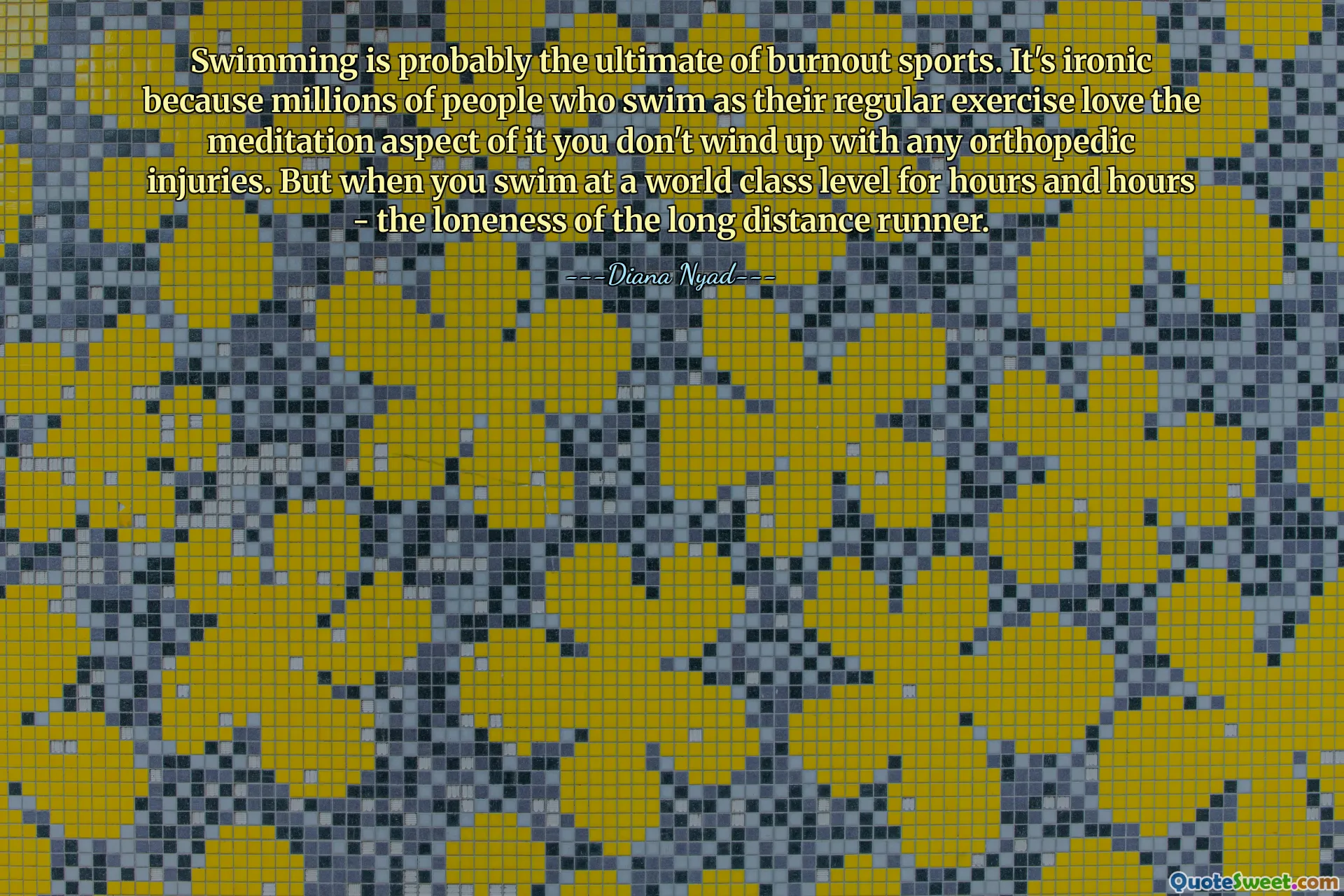
Swimming is probably the ultimate of burnout sports. It's ironic because millions of people who swim as their regular exercise love the meditation aspect of it you don't wind up with any orthopedic injuries. But when you swim at a world class level for hours and hours - the loneness of the long distance runner.
This quote highlights the complex duality inherent in the sport of swimming. On one side, for the average swimmer, it offers a form of meditation and mental clarity, free from the typical injuries associated with more high-impact sports. Many enthusiasts find solace and tranquility in the rhythmic movements of swimming, treating it as a meditative practice that promotes mental well-being. However, the quote also sheds light on the grueling and isolative nature of competitive, long-distance swimming at an elite level. Training for hours on end can lead to mental fatigue and a sense of solitude akin to that of long-distance runners. This dichotomy underscores how a sport can be holistic and fulfilling at the amateur level but demanding and isolating at the professional echelons. It provokes reflection on the physical and emotional toll that relentless training can impose, contrasting it with the leisure aspect that many enthusiasts experience. The mention of orthopedic injuries reminds us that the perceived safety of swimming isn’t universal when one pushes beyond typical boundaries. Overall, the quote encapsulates the intricate balance of physical challenge, mental respite, and potential emotional isolation inherent in the sport, providing insights into how personal experience varies dramatically based on the level of commitment and intensity.











